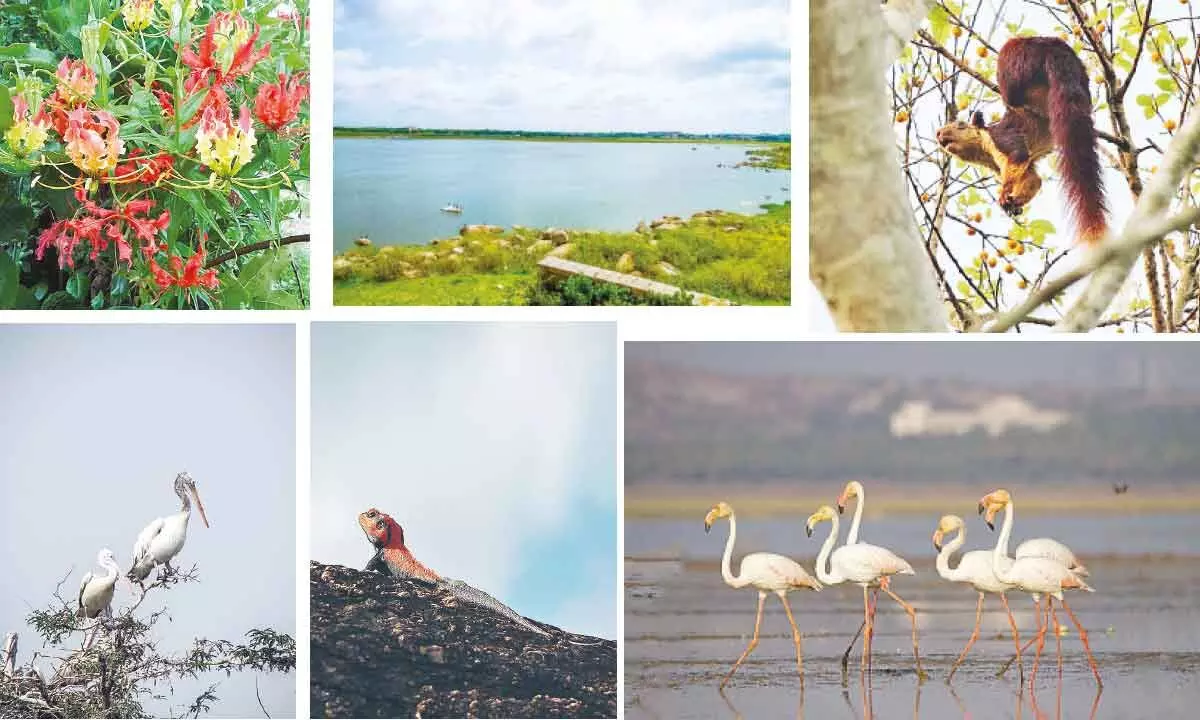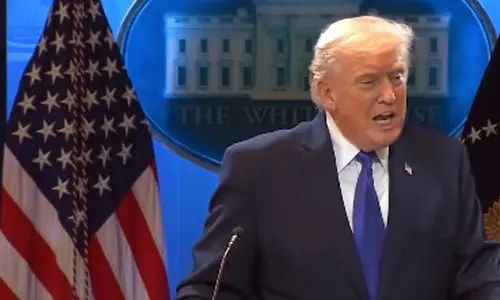Telangana to roll out Biodiversity Plan tomorrow

Kunming-Montreal Global Biodiversity Framework includes four goals and 23 targets for achievement by 2030
♦ The formulation and execution of biodiversity plans at the State level are of utmost importance
♦ Various factors have contributed to depletion of the biodiversity during the Industrial Revolution and subsequent decades
♦ Earlier humans utilised eight per cent of the earth’s resources and now it is 43 per cent where every form of life is threatened
♦ TS initiated an action plan funded by NBAI, in alignment with the international protocols, along with Montreal and Kunming Protocols, and in collaboration with CIPS, ASCI
We have also established a partnership with the United Nations Development Programme (UNDP) to explore specific agricultural products that lack commercial value, despite their significant medicinal and nutritional benefits. Our collaborative efforts will encompass the development of marketing strategies as well as initiatives such as documentation, training, capacity building, and others - Dr Rajat Kumar, Spl, Chief Secy, Environment, Sci&Tech, Chairman, Telangana State Biodiversity Board
Within each State, there are various ecosystems and agricultural practices. Districts within States often cater to distinct aspects of biodiversity. To harness the full potential of these resources, its essential for State governments to devise effective marketing strategies for organic products, promotion of indigenous and local varieties - C Achalender Reddy, IFS (Retd), Chairperson, National Biodiversity Authority
Hyderabad: Telangana State will release its own action plan for biodiversity conservation, which is called State Biodiversity Strategy and Action Plan (SBSAP), 2023-2030 on October 5, 2023. This is aligned with the National Biodiversity Strategy and Action Plan (NBSAP). Speaking to The Hans India, C Achalender Reddy, IFS (Retd), Chairperson, National Biodiversity Authority, Chennai says, “Though the central government plays a major role in overseeing biodiversity governance, its crucial to recognise that biodiversity varies from State to State. Consequently, the management of biosphere reserves, agri biodiversity, forest and domestic bioresources fall directly under the jurisdiction of individual States which necessitates the development of State-specific biodiversity strategies and action plans for conservation, its sustainable use and fair and equitable benefit sharing.”
In view of the international agreements like Kunming-Montreal Global Biodiversity Framework, which includes four goals and 23 targets for achievement by 2030, it becomes evident that States play a pivotal role in achieving these targets. Therefore, the formulation and execution of biodiversity plans at the State level are of utmost importance.
“Further, within each State, there are various ecosystems and agricultural practices. Districts within States often cater to distinct aspects of biodiversity. To harness the full potential of these resources, its essential for State governments to devise effective marketing strategies for organic products, promotion of indigenous and local varieties. Additionally, adopting mechanisms for access and benefit sharing becomes crucial to ensure that local communities and stakeholders are fairly compensated for their contribution to biodiversity conservation and sustainable resource use. By tailoring strategies at the State level and addressing local nuances, we can better protect and leverage our diverse natural assets,” he added.
Dr Rajat Kumar, Chairman, Telangana State Biodiversity Board says, “In recent times, we have witnessed a growing and concerning threat to the environmental ecosystem as a whole and biodiversity in particular. Genetic diversity is crucial for the health and resilience of ecosystems. Each species, be it plants, animals, birds, reptiles possesses a unique genetic makeup and they interact with each other within the ecosystem. However, during the Industrial Revolution and subsequent decades, various factors have contributed to depletion of the biodiversity. For instance, there is a rapid expansion of human needs and activities, particularly over the last century. While in the past, humans utilised only eight per cent of the earth’s resources, today we exploit a staggering 43 per cent where every form of life is threatened. When biodiversity is threatened, the entire ecosystem in the environment becomes very fragile.”
In recent times, numerous international protocols and conferences have taken place to address biodiversity concerns, with notable examples being the Montreal and Kunming Protocols. These initiatives have introduced innovative financing mechanisms to support biodiversity. It also outlines four primary goals and a comprehensive set of 23 targets aimed at measuring, safeguarding, and preserving our biodiversity. Additionally, these protocols identify key stakeholders and participants in these crucial efforts.
In view of the recent developments and to protect its biodiversity, Telangana has initiated an action plan funded by NBAI, in alignment with the international protocols, along with Montreal and Kunming Protocols, and in collaboration with Centre for Innovations in Public Systems (CIPS), Administrative Staff College of India (ASCI), is set to launch its action plan for the conservation of the biodiversity. This will be the first action plan by any State in India in concurrence with Kunming Montreal Protocols.
We have also established a partnership with the United Nations Development Programme (UNDP) to explore specific agricultural products that lack commercial value, despite their significant medicinal and nutritional benefits. Our collaborative efforts will encompass the development of marketing strategies as well as initiatives such as documentation, training, capacity building, and others,” adds Dr Rajat Kumar.










